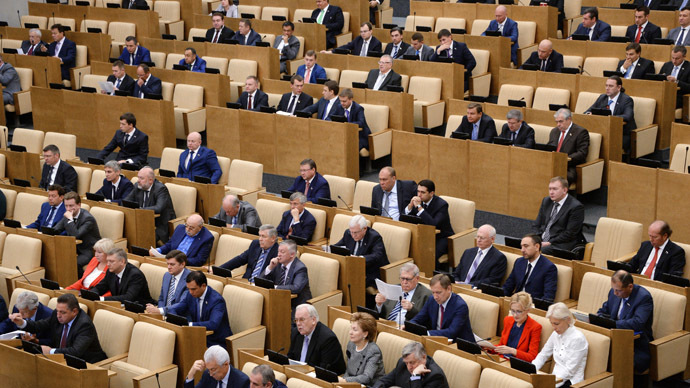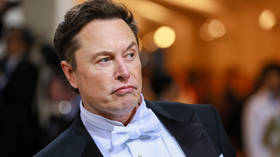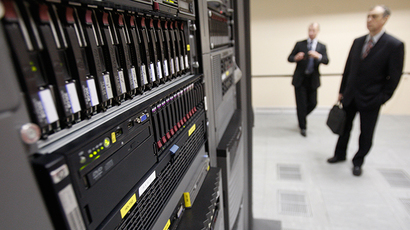Duma seeks limits on foreign ownership of Russian media companies

A group of opposition lawmakers have prepared a bill that orders Russian mass media companies to have at least 80 percent of their stock held by Russian investors.
The bill is backed by MPs from Liberal Democratic and Communist parties as well as representatives of the center-left party Fair Russia. Apart from lowering the maximum share in Russian mass media companies allowed for foreign citizens and firms from current 50 percent to 20 percent, the draft bans foreigners from being founders of Russian mass media companies.
The restrictions also apply to residents without citizenship and Russians who have citizenship of other nations.
The sponsors of the motion also plan to impose the similar restrictions on printed mass media, the ownership in which is not currently regulated.
If passed, the bill would come into force on January 1, 2016, but companies that have some of their stock in foreign hands will be given time till February 1, 2017, to bring the corporate structure in line with the new regulations, the lawmakers told Izvestia daily. Federal mass media watchdog Roskomnadzor will be made responsible for overseeing these operations.
One of the bill’s authors, MP Vadim Dengin (LDPR) noted that the main reason behind the motion was the desire to provide maximum information security.
“Those who own information own the world. It is obvious that when foreigners enter the mass media market of any country they practically gain access to people’s minds, to forming of the public opinion. And we must draw a clear line here – what are the reasons behind such purchases? Do they want simply to do business or do they want to enforce their policies and to change the situation inside the country?” Dengin said, addressing reporters.
MP Vladimir Parakhin (Fair Russia) said that the 20 percent limit was chosen because the 25 percent share would enable a blocking package, allowing its owners to exert serious influence on the information policy of any media outlet.
The lawmaker also noted that the need for restrictions became obvious after some Russian recent crisis in Ukraine had demonstrated that some of the Russian press can be biased in their coverage of important topics.
Both MPs added that the bill is in line with international practice as many countries in the world had already protected their informational space from excessive foreign influence. For example, Australia has set a 30 percent limit of foreign ownership in national mass media and Canada has a law limiting foreign ownership in electronic mass media by 46 percent. The United States allow foreigners to control not more than 25 percent of American TV and radio stations, which Japan has set this limit at 20 percent. France will not allow non-EU citizens and companies to possess more than 20 percent of its mass media. In the UK the shares of foreign stockholders in mass media corporations cannot exceed those owned by British investors.
Presently, many major Russian media outlets are owned by foreign firms – either international holdings, such as Sanoma or Hearst, or offshore companies.
Representatives of mass media community have acknowledged the importance of informational security, but urged caution in implementation of the bill in current economic conditions.
“If such a bill appeared under normal conditions it would be illogical, but in the modern environment of the new Cold War the step is quite predictable. Of course it would not improve the quality of our media outlets’ work,” said renowned TV journalist and a member of the Presidential Human Rights Council Nikolay Svanidze.














